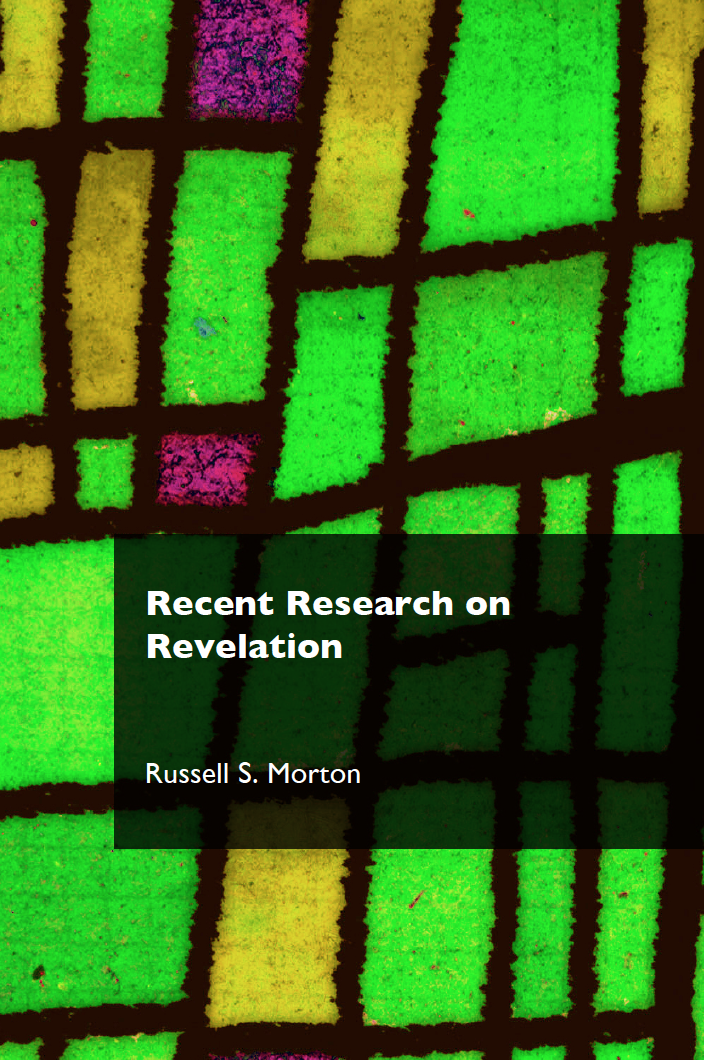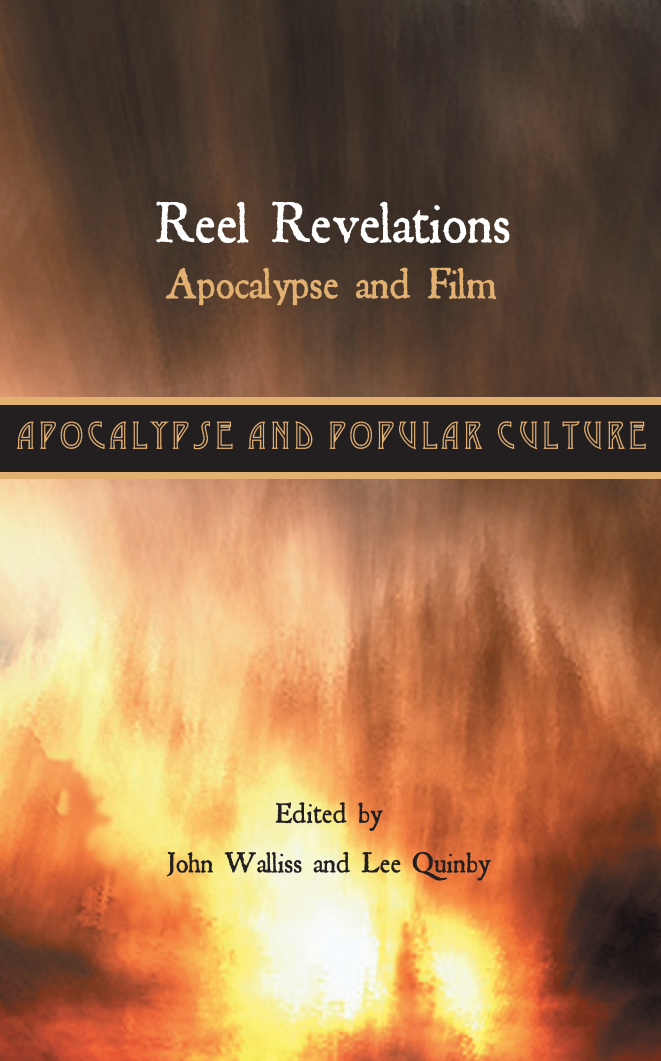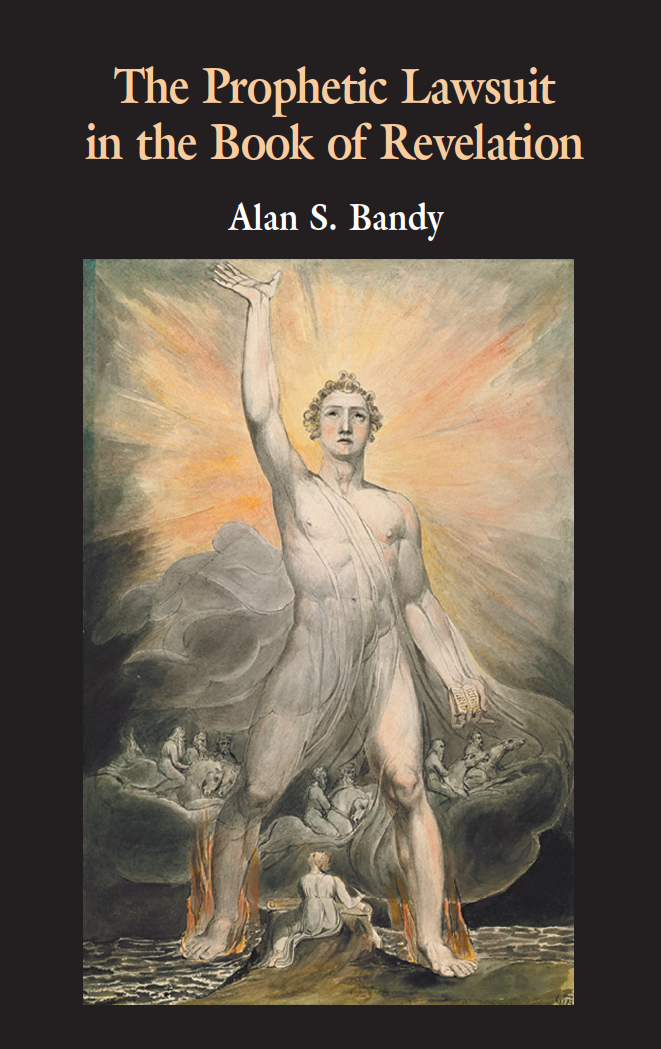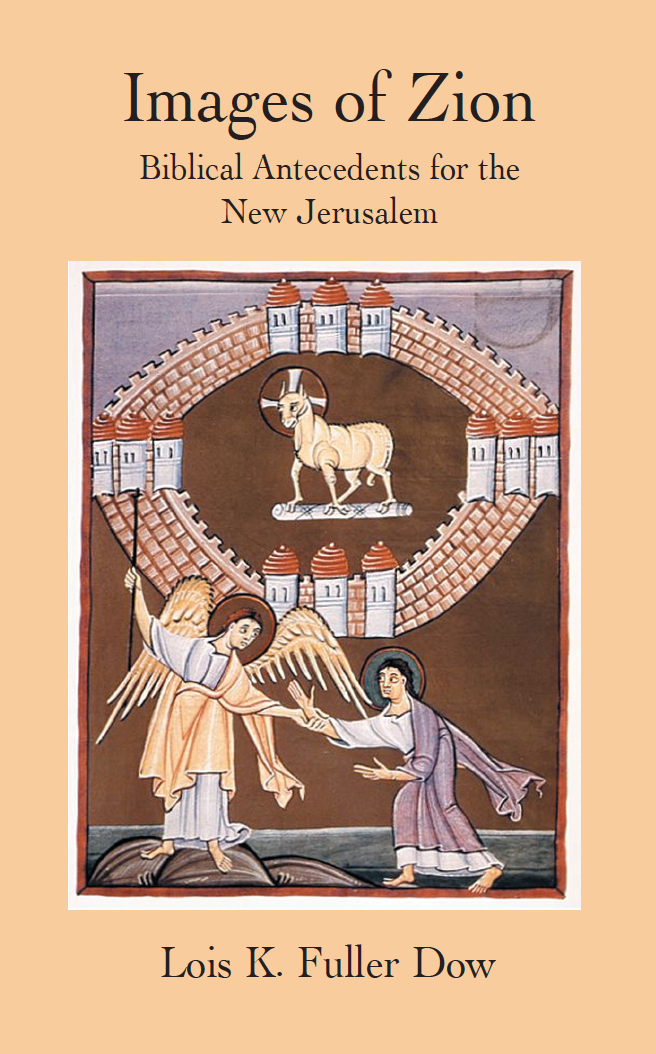Recent Research on Revelation
Published: Sep 2014
£60.00
Perhaps no other biblical book has been the source of as much consternation to its readers as the Revelation of John of Patmos. Their distress has been accentuated by popular approaches, which often advance sensationalist visions of the future. But did John's vision focus on the distant future, or was it directed to concerns of his own day? If it was directed to his own situation in Roman Asia Minor, what lasting significance, if any, does it have for people two thousand years after the composition of the work?
Recent Research on Revelation is an ambitious attempt to comprehend the great range of scholarly views on the Apocalypse. Avoiding popular and sensational readings of Revelation, this book outlines how scholars of various stripes grapple with John's dramatic and often disturbing book. Beginning with a historical survey of scholarly opinion, the book examines the question of what form of literature Revelation is. It then offers an overview of various methods used to interpret the Apocalypse, ranging from traditional historical-critical analysis to feminist and postcolonial criticisms.
The Apocalypse continues to evoke strong reactions in its readers, both positive and negative, from comfort to perplexity to revulsion. At the very least, it stimulates readers' interest to an extent not surpassed by any other New Testament book. We cannot shut our eyes to John's vision, for it has had too much impact on who we are, whether Christian or not.
Recent Research on Revelation
£60.00
Perhaps no other biblical book has been the source of as much consternation to its readers as the Revelation of John of Patmos. Their distress has been accentuated by popular approaches, which often advance sensationalist visions of the future. But did John's vision focus on the distant future, or was it directed to concerns of his own day? If it was directed to his own situation in Roman Asia Minor, what lasting significance, if any, does it have for people two thousand years after the composition of the work?
Recent Research on Revelation is an ambitious attempt to comprehend the great range of scholarly views on the Apocalypse. Avoiding popular and sensational readings of Revelation, this book outlines how scholars of various stripes grapple with John's dramatic and often disturbing book. Beginning with a historical survey of scholarly opinion, the book examines the question of what form of literature Revelation is. It then offers an overview of various methods used to interpret the Apocalypse, ranging from traditional historical-critical analysis to feminist and postcolonial criticisms.
The Apocalypse continues to evoke strong reactions in its readers, both positive and negative, from comfort to perplexity to revulsion. At the very least, it stimulates readers' interest to an extent not surpassed by any other New Testament book. We cannot shut our eyes to John's vision, for it has had too much impact on who we are, whether Christian or not.
Reel Revelations: Apocalypse and Film
Published: Oct 2010
£50.00
In the last decades, writers and directors have increasingly found the Book of Revelation a fitting cinematic muse for an age beset by possibilities of world destruction. Many apocalyptic films stay remarkably close to the idea of apocalypse as a revelation about the future, often quoting or using imagery from Revelation, as well as its Old Testament antecedents in Daniel, Ezekiel, and Isaiah.
The apocalyptic paradigm often instigates social criticism. Kim Paffenroth examines how zombie films deploy apocalyptic language and motifs to critique oppressive values in American culture. Lee Quinby shows how Richard Kelly's Southland Tales critiques not only social and economic crises in the USA but also Revelation's depictions of Good versus Evil as absolute oppositions. Frances Flannery points out how Josh Whedon's Serenity deconstructs the apocalypse precisely by using elements of it, depicting humans as their own created monsters.
Jon Stone notes how apocalyptic fictions, while presenting nightmare scenarios, are invariably optimistic, with human ingenuity effectively responding to potential disasters. Mary Ann Beavis examines the device of invented scriptures (pseudapocrypha), deployed as a narrative trope for holding back the final cataclysm. John Walliss studies evangelical Christian films that depict how the endtime scenario will unfold, so articulating and even redefining a sense of evangelical identity.
Richard Walsh analyses the surreptitious sanctification of empire that occurs in both Revelation and End of Days under the cover of a blatant struggle with another 'evil' empire. Greg Garrett examines how the eschatological figure of 'The Son of Man' is presented in the Matrix trilogy, the Terminator tetralogy, and Signs. Elizabeth Rosen shows how a postmodern apocalyptic trend has been working its way into children's fiction and film such as The Transformers, challenging the traditionally rigid depictions of good and evil found in many children's stories.
Reel Revelations: Apocalypse and Film
£50.00
In the last decades, writers and directors have increasingly found the Book of Revelation a fitting cinematic muse for an age beset by possibilities of world destruction. Many apocalyptic films stay remarkably close to the idea of apocalypse as a revelation about the future, often quoting or using imagery from Revelation, as well as its Old Testament antecedents in Daniel, Ezekiel, and Isaiah.
The apocalyptic paradigm often instigates social criticism. Kim Paffenroth examines how zombie films deploy apocalyptic language and motifs to critique oppressive values in American culture. Lee Quinby shows how Richard Kelly's Southland Tales critiques not only social and economic crises in the USA but also Revelation's depictions of Good versus Evil as absolute oppositions. Frances Flannery points out how Josh Whedon's Serenity deconstructs the apocalypse precisely by using elements of it, depicting humans as their own created monsters.
Jon Stone notes how apocalyptic fictions, while presenting nightmare scenarios, are invariably optimistic, with human ingenuity effectively responding to potential disasters. Mary Ann Beavis examines the device of invented scriptures (pseudapocrypha), deployed as a narrative trope for holding back the final cataclysm. John Walliss studies evangelical Christian films that depict how the endtime scenario will unfold, so articulating and even redefining a sense of evangelical identity.
Richard Walsh analyses the surreptitious sanctification of empire that occurs in both Revelation and End of Days under the cover of a blatant struggle with another 'evil' empire. Greg Garrett examines how the eschatological figure of 'The Son of Man' is presented in the Matrix trilogy, the Terminator tetralogy, and Signs. Elizabeth Rosen shows how a postmodern apocalyptic trend has been working its way into children's fiction and film such as The Transformers, challenging the traditionally rigid depictions of good and evil found in many children's stories.
The Prophetic Lawsuit in the Book of Revelation
Published: May 2010
£85.00
The language, metaphors and storyline of the Book of Revelation evoke a cosmic law court setting. Juridical metaphors of a legal contest between the faithful witnesses and the 'accuser of the brethren' are intertwined throughout with images of holy war. Although such features have often been noted, this is the first full-length study drawing together the diverse evidence and reading the book through the lens of the controlling metaphor of the lawsuit.
The background of the law court setting in Revelation is the Old Testament prophetic genre of the lawsuit, sometimes conceived of as a lawsuit against God's own people for their violations of the covenant, sometimes as a lawsuit against foreign nations for their oppression of Israel. Prophetic lawsuit language often culminated in oracles of salvation announcing the vindication of the righteous.
Reading Revelation with an awareness of the prophetic lawsuit motif will enable readers to interpret the juridical images as consistent features in the overall narrative. The purpose of Revelation's narrative is to depict the sovereign judge of the universe rendering ultimate justice through the condemnation of the wicked and the vindication of the saints. This message of vindication is intended to encourage Christians in Asia Minor at the end of the first century not to capitulate or even accommodate to the socio-religious norms of their time.
The Prophetic Lawsuit in the Book of Revelation
£85.00
The language, metaphors and storyline of the Book of Revelation evoke a cosmic law court setting. Juridical metaphors of a legal contest between the faithful witnesses and the 'accuser of the brethren' are intertwined throughout with images of holy war. Although such features have often been noted, this is the first full-length study drawing together the diverse evidence and reading the book through the lens of the controlling metaphor of the lawsuit.
The background of the law court setting in Revelation is the Old Testament prophetic genre of the lawsuit, sometimes conceived of as a lawsuit against God's own people for their violations of the covenant, sometimes as a lawsuit against foreign nations for their oppression of Israel. Prophetic lawsuit language often culminated in oracles of salvation announcing the vindication of the righteous.
Reading Revelation with an awareness of the prophetic lawsuit motif will enable readers to interpret the juridical images as consistent features in the overall narrative. The purpose of Revelation's narrative is to depict the sovereign judge of the universe rendering ultimate justice through the condemnation of the wicked and the vindication of the saints. This message of vindication is intended to encourage Christians in Asia Minor at the end of the first century not to capitulate or even accommodate to the socio-religious norms of their time.
Images of Zion: Biblical Antecedents for the New Jerusalem
Published: Apr 2010
£60.00
This study, unparalleled in recent scholarly writing, sets out to examine the broad sweep of the biblical theological tradition about Jerusalem/Zion as the antecedent to Revelation's depiction of the New Jerusalem.
In the Old Testament, Jerusalem/Zion is depicted in both its ideal form and its actual manifestation. In the Psalms (and seminally in the Pentateuch), Zion is depicted as similar to the holy mountains of the gods in Ugaritic religion. But it is not only a dwelling-place of the deity: it is also an earthly city inhabited by humans, and so it becomes a place of community of the divine and the human. The historical books of course make no secret of the realities of life in the far from holy Jerusalem, and, in the prophets also, the city of Jerusalem is the site of wrongdoing and corruption, a place attracting judgment; but equally it is the focus for eschatological anticipations of a renewed community that does fulfil the ideal.
In the New Testament, by its rejection of the Messiah earthly Jerusalem forfeits its role as the true Jerusalem/Zion, which is taken over by Jesus and the church. Occasionally we get glimpses of the belief that the true Jerusalem is in heaven (a development begun in Second Temple literature). The book of Revelation picks up as well from Second Temple literature the theme of the identity of Jerusalem with the Garden of Eden, combining this idea with renewal-of-Zion passages from the prophets to depict the final state of God's people as a place of blessedness, community, life and safety, as well of intimacy with God.
Images of Zion: Biblical Antecedents for the New Jerusalem
£60.00
This study, unparalleled in recent scholarly writing, sets out to examine the broad sweep of the biblical theological tradition about Jerusalem/Zion as the antecedent to Revelation's depiction of the New Jerusalem.
In the Old Testament, Jerusalem/Zion is depicted in both its ideal form and its actual manifestation. In the Psalms (and seminally in the Pentateuch), Zion is depicted as similar to the holy mountains of the gods in Ugaritic religion. But it is not only a dwelling-place of the deity: it is also an earthly city inhabited by humans, and so it becomes a place of community of the divine and the human. The historical books of course make no secret of the realities of life in the far from holy Jerusalem, and, in the prophets also, the city of Jerusalem is the site of wrongdoing and corruption, a place attracting judgment; but equally it is the focus for eschatological anticipations of a renewed community that does fulfil the ideal.
In the New Testament, by its rejection of the Messiah earthly Jerusalem forfeits its role as the true Jerusalem/Zion, which is taken over by Jesus and the church. Occasionally we get glimpses of the belief that the true Jerusalem is in heaven (a development begun in Second Temple literature). The book of Revelation picks up as well from Second Temple literature the theme of the identity of Jerusalem with the Garden of Eden, combining this idea with renewal-of-Zion passages from the prophets to depict the final state of God's people as a place of blessedness, community, life and safety, as well of intimacy with God.
The Way the World Ends? the Apocalypse of John in Culture and Ideology
Published: Mar 2009
£60.00
The richly varied collection of 15 essays in this volume showcase the afterlife of the Book of Revelation. It is a biblical book that has left its mark in many fields of intellectual endeavour: literature, film, music, philosophy, political theology, and religious ideology. It is perhaps paradoxical that this book, which promises God's punishment upon anyone expanding on its contents, has nevertheless accumulated to itself over two millennia vast amounts of commentary, exposition, and appropriation.
Offered at the close of the 'Blair/Bush years', this volume also exposes and highlights the often deeply ironic resonances generated while studying the reception history of Revelation during a period when the book has both significant public currency and a potentially terrifying global impact.
The Way the World Ends? the Apocalypse of John in Culture and Ideology
£60.00
The richly varied collection of 15 essays in this volume showcase the afterlife of the Book of Revelation. It is a biblical book that has left its mark in many fields of intellectual endeavour: literature, film, music, philosophy, political theology, and religious ideology. It is perhaps paradoxical that this book, which promises God's punishment upon anyone expanding on its contents, has nevertheless accumulated to itself over two millennia vast amounts of commentary, exposition, and appropriation.
Offered at the close of the 'Blair/Bush years', this volume also exposes and highlights the often deeply ironic resonances generated while studying the reception history of Revelation during a period when the book has both significant public currency and a potentially terrifying global impact.
Empire and Apocalypse: Postcolonialism and the New Testament
Published: Oct 2006
Price range: £18.50 through £37.00
In Empire and Apocalypse Stephen Moore offers us the most complete introduction yet to the emergent field of postcolonial biblical criticism. It includes an indispensable in-depth introduction to postcolonial theory and criticism together with a detailed survey of postcolonial biblical criticism.
Next come three substantial exegetical chapters on the Gospels of Mark and John and the Book of Revelation, which together demonstrate how postcolonial studies provide fresh conceptual resources and critical strategies for rethinking early Christianity's complex relations to the Roman Empire. Each of these three texts, to different degrees, Moore argues, mimic and replicate fundamental facets of Roman imperial ideology even while resisting and eroding it.
The book concludes with an amply annotated bibliography whose main section provides a comprehensive listing of work done to date in postcolonial biblical criticism.
Empire and Apocalypse: Postcolonialism and the New Testament
Price range: £18.50 through £37.00
In Empire and Apocalypse Stephen Moore offers us the most complete introduction yet to the emergent field of postcolonial biblical criticism. It includes an indispensable in-depth introduction to postcolonial theory and criticism together with a detailed survey of postcolonial biblical criticism.
Next come three substantial exegetical chapters on the Gospels of Mark and John and the Book of Revelation, which together demonstrate how postcolonial studies provide fresh conceptual resources and critical strategies for rethinking early Christianity's complex relations to the Roman Empire. Each of these three texts, to different degrees, Moore argues, mimic and replicate fundamental facets of Roman imperial ideology even while resisting and eroding it.
The book concludes with an amply annotated bibliography whose main section provides a comprehensive listing of work done to date in postcolonial biblical criticism.







Revelation, Second Edition
Revelation, Second Edition